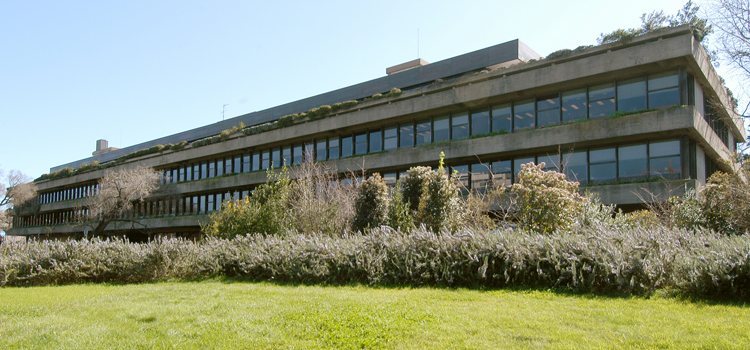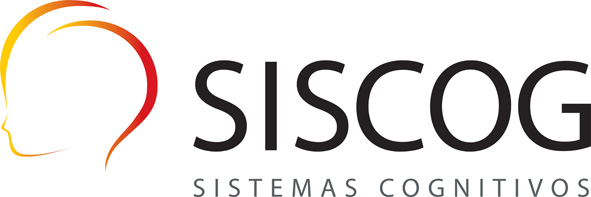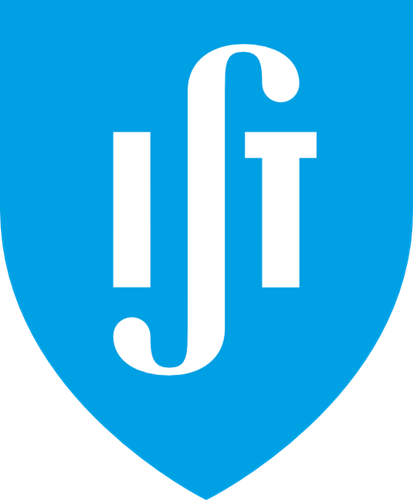Highlights
Going Meta: Reflections on Lisp, Past and Future
-
 Kent Pitman Kent Pitman HyperMeta Inc (COMMITTEE SPEAKER) USA
Kent Pitman Kent Pitman HyperMeta Inc (COMMITTEE SPEAKER) USA
Over a period of several decades, I have had the good fortune to witness and influence the design, evolution, standardization and use of quite a number of dialects of Lisp, including MACLISP, T, Scheme, Zetalisp, Common Lisp, and ISLISP. I will offer reflections, from a personal point of view, about what enduring lessons I have learned through this long involvement. Both the programming world and the real world it serves have changed a lot in that time. Some issues that faced Lisp in the past no longer matter, while others matter more than ever. I'll assess the state of Lisp today, what challenges it faces, what pitfalls it needs to avoid, and what Lisp's role might and should be in the future of languages, of programming, and of humanity.
-
Lots of Languages, Tons of Types
-
 Matthias Felleisen Matthias Felleisen Northeastern University (SPEAKER)
Matthias Felleisen Matthias Felleisen Northeastern University (SPEAKER)
Since 1995 my research team (PLT) and I have been working on a language for creating programming languages — small and large. Our code base includes a range of languages, and others contribute additional languages on a regular basis. PLT programmers don't hesitate to pick our lazy dialect to implement one module and to link it to a strict language for another module in the same system. Later they may even migrate one of the modules to the typed variant during some maintenance task. An expressive macro system is one key to this riches of languages. Starting with the 1986 introduction of hygienic macros, the SCHEME world has worked on turning macros into tools for creating proper abstractions. The first part of my talk will briefly describe this world of modern macros and its key attributes: hygiene, referential transparency, modularity of macros, phase separation, and macro specification. The second part of my talk will focus on how to equip LISP-like languages with a sound type systems and that will illustrate the second key idea, namely, monitoring the interactions between different languages. Our approach to type systems allows programmers to stick to their favorite LISP idioms. It mostly suffices to annotate functions and structures with type declarations during maintenance work. To ensure the soundness of this information even when higher-order values flow back and forth between typed and untyped modules, module boundaries are automatically equipped with software contracts that enforce type-invariants at all levels.
-
Reading the News with Common Lisp
-
 Jason Cornez Jason Cornez RavenPack (SPEAKER)
Jason Cornez Jason Cornez RavenPack (SPEAKER)
The financial industry thrives on data: oceans of historical archives and rivers of low-latency, real-time feeds. If you can know more, know sooner,or know differently, then there is the opportunity to exploit this knowledge and make money. Today's automated trading systems consume this data and make unassisted decisions to do just that. But even though almost every trader will tell you that news is an important input into their trading decisions, most automated systems today are completely unaware of the news — some data is missing. What technology is being used to change all this and make news available as analytic data to meet the aggressive demands of the financial industry? For around seven years now, RavenPack has been using Common Lisp as the core technology to solve problems and create opportunities for the financial industry. We have a revenue-generating business model where we sell News Analytics — factual and sentiment data extracted from unstructured, textual news. In this talk, I'll describe the RavenPack software architecture with special focus on how Lisp plays a critical role in our technology platform, and hopefully in our success. I hope to touch upon why we at RavenPack love Lisp, some challenges we face when using Lisp, and perhaps even some principles of successful software engineering.
-
Location
 Fundação Calouste Gulbenkian https://gulbenkian.pt (CONFERENCE) Av. de Berna 45 A 1067-001 Lisboa Portugal
Fundação Calouste Gulbenkian https://gulbenkian.pt (CONFERENCE) Av. de Berna 45 A 1067-001 Lisboa Portugal Hotels
- Hotel Radisson Sas Lisboa http://www.radisson.com/lisbonpt +351 210045000 (HOTEL)
- Holiday Inn Lisboa http://www.hollidayinn.com/lisbonprt +351 210044000 (HOTEL)
- Hotel Flórida http://www.hotel.florida.pt/ +351 213576145 (HOTEL)
- Hotel Vip Barcelona http://www.viphotels.com/ +351 217954273 (HOTEL)
- Holiday Inn LISBON-CONTINENTAL http://www.holiday-inn.com/lisbon-contine +351 210046000 (HOTEL)
- Sana Malhoa Hotel http://www.sanahotels.com/sanaparkmalhoa.html +351 210061800 (HOTEL)
- VIP Zurique http://www.viphotels.com/ +351 217814000 (HOTEL)
- Sana Capitol Hotel http://www.sanahotels.com/sanaparkmalhoa.html +351 210064425 (HOTEL)
- Hotel A. S. http://www.hotel-aslisboa.com/ +351 218429360 (HOTEL)
- Hotel Eduardo VII http://www.hoteleduardovii.pt/ +351 213568822 (HOTEL)
Organization
Programme Chair
-
 Christophe Rhodes Christophe Rhodes Goldsmiths University of London (PROGRAMME-CHAIR) United Kingdom
Christophe Rhodes Christophe Rhodes Goldsmiths University of London (PROGRAMME-CHAIR) United Kingdom
Organizing Chair
-
 Didier Verna Didier Verna https://www.didierverna.info EPITA / LRE (ORGANIZING-CHAIR COMMITTEE SPEAKER) France
Didier Verna Didier Verna https://www.didierverna.info EPITA / LRE (ORGANIZING-CHAIR COMMITTEE SPEAKER) France
Local Chair
-
 António Leitão António Leitão Technical University of Lisbon (LOCAL-CHAIR) Portugal
António Leitão António Leitão Technical University of Lisbon (LOCAL-CHAIR) Portugal
Committee
-
 Barry Wilkes Barry Wilkes Citi (COMMITTEE) United Kingdom
Barry Wilkes Barry Wilkes Citi (COMMITTEE) United Kingdom -
 Christian Queinnec Christian Queinnec Université Pierre et Marie Curie (COMMITTEE) France
Christian Queinnec Christian Queinnec Université Pierre et Marie Curie (COMMITTEE) France -
 Didier Verna Didier Verna https://www.didierverna.info EPITA / LRE (ORGANIZING-CHAIR COMMITTEE SPEAKER) France
Didier Verna Didier Verna https://www.didierverna.info EPITA / LRE (ORGANIZING-CHAIR COMMITTEE SPEAKER) France -
 Giuseppe Attardi Giuseppe Attardi Università di Pisa (COMMITTEE) Italy
Giuseppe Attardi Giuseppe Attardi Università di Pisa (COMMITTEE) Italy -
 Gregor Kiczales Gregor Kiczales University of British Columbia (COMMITTEE) Canada
Gregor Kiczales Gregor Kiczales University of British Columbia (COMMITTEE) Canada -
 Irène Durand Irène Anne Durand Université Bordeaux (COMMITTEE SPEAKER) France
Irène Durand Irène Anne Durand Université Bordeaux (COMMITTEE SPEAKER) France -
 Kent Pitman Kent Pitman HyperMeta Inc (COMMITTEE SPEAKER) USA
Kent Pitman Kent Pitman HyperMeta Inc (COMMITTEE SPEAKER) USA -
 Marc Feeley Marc Feeley Université de Montréal (COMMITTEE) Canada
Marc Feeley Marc Feeley Université de Montréal (COMMITTEE) Canada -
 Marco Antoniotti Marco Antoniotti Università Milano Bicocca (COMMITTEE) Italy
Marco Antoniotti Marco Antoniotti Università Milano Bicocca (COMMITTEE) Italy -
 Nick Levine Nick Levine Ravenbrook Ltd (COMMITTEE) United Kingdom
Nick Levine Nick Levine Ravenbrook Ltd (COMMITTEE) United Kingdom -
 Pascal Costanza Pascal Costanza Vrije Universiteit Brussel (COMMITTEE SPEAKER) Belgium
Pascal Costanza Pascal Costanza Vrije Universiteit Brussel (COMMITTEE SPEAKER) Belgium -
 Peter Norvig Peter Norvig Google (COMMITTEE) USA
Peter Norvig Peter Norvig Google (COMMITTEE) USA -
 Robert Strandh Robert Strandh Université Bordeaux (COMMITTEE) France
Robert Strandh Robert Strandh Université Bordeaux (COMMITTEE) France -
 Ron Garret Ron Garret Amalgamated Widgets Unlimited (COMMITTEE) USA
Ron Garret Ron Garret Amalgamated Widgets Unlimited (COMMITTEE) USA -
 Scott McKay Scott McKay ITA Software Inc. (COMMITTEE) USA
Scott McKay Scott McKay ITA Software Inc. (COMMITTEE) USA -
 Taiichi Yuasa Taiichi Yuasa Kyoto University (COMMITTEE) Japan
Taiichi Yuasa Taiichi Yuasa Kyoto University (COMMITTEE) Japan
Programme
Times are local to the conference. You can download the programme in iCalendar format here.May 5th
Registration
May 6th
Registration
Welcome Message
Going Meta: Reflections on Lisp, Past and Future
- Kent Pitman
Coffee
Verifying monadic second order graph properties with tree automata
- Bruno Courcelle
- Irène Durand
A DSEL for Computational Category Theory
- Aleksandar Bakic
Lunch
Reading the News with Common Lisp
- Jason Cornez
Coffee
Marrying Common Lisp to Java, and Their Offspring
- Jerry Boetje
- Steven Melcher
Computer Vision with Allegro Common Lisp and the VIGRA Library using VIGRACL
- Benjamin Seppke
- Leonie Dreschler-Fischer
Reception at the City Hall
May 7th
Parallel Programming in Common Lisp
- Pascal Costanza
Coffee
CLoX: Common Lisp Objects for XEmacs
- Didier Verna
CLWEB: A literate programming system for Common Lisp
- Alexander Plotnick
Lunch
Lots of Languages, Tons of Types
- Matthias Felleisen
Coffee
Panel
Conference End
Conference Dinner










